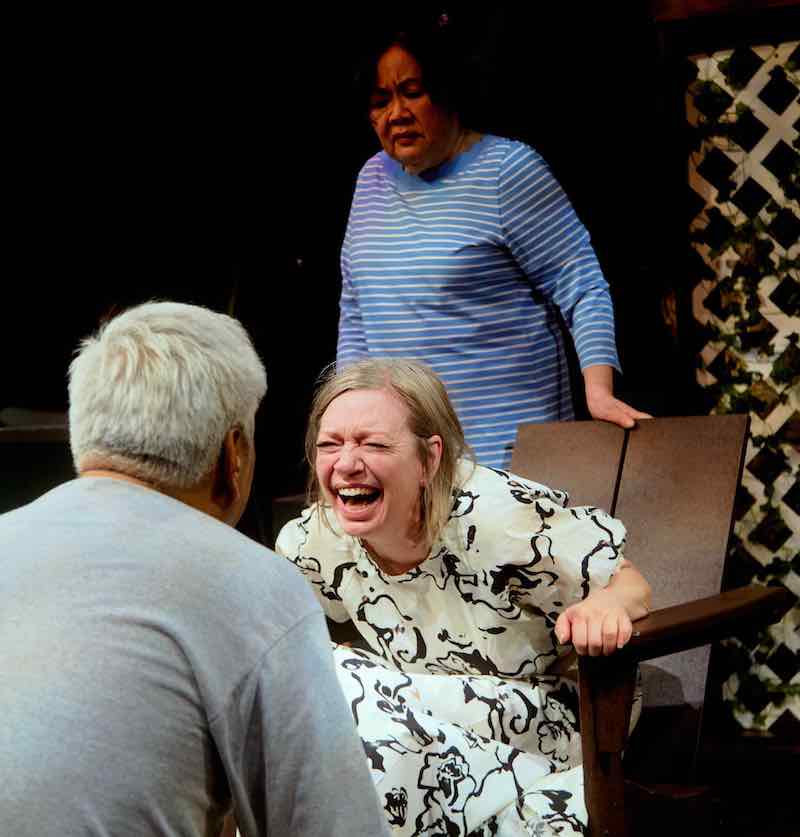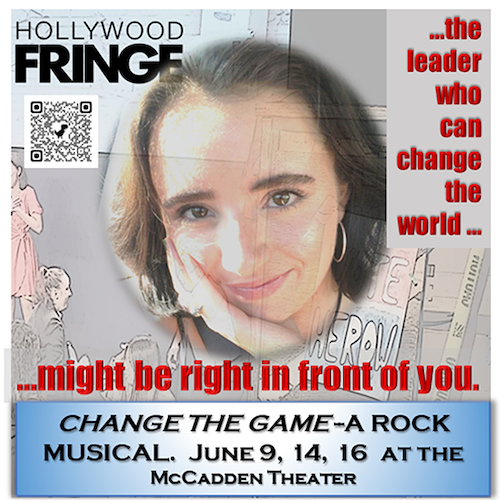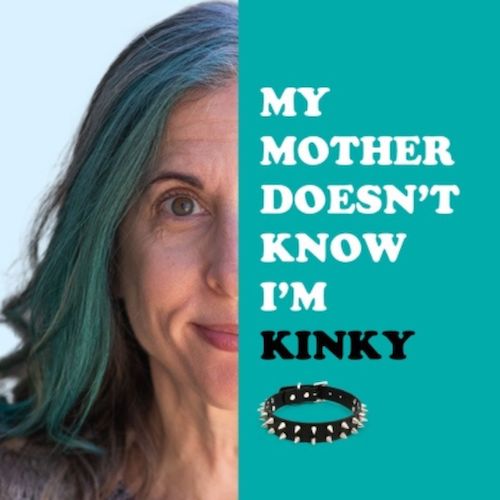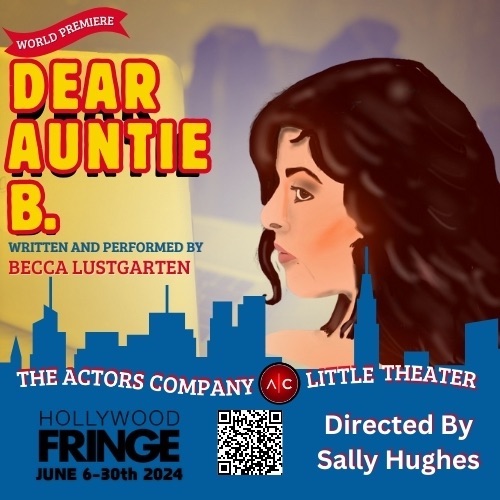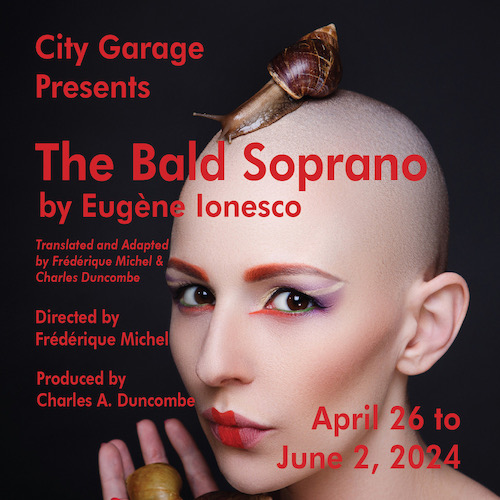
Robert Almodovar, Rachel Sorsa, and Emily Kuroda (Photo by Zev Rose Woolley)
Reviewed by Socks Whitmore
Playwrights’ Arena and Los Angeles LGBT Center
Through Mar 18
RECOMMENDED
“The world is upside down, sister. It can’t go on like this.”
With violence on the rise, corruption in the spotlight, and extremist ideologies more polarized than ever, the need for radical change is as palpable as the need for conversation about it. For playwright Nick Salamone and director Jon Lawrence Rivera — the duo behind Playwrights’ Arena’s productions Helen & Billy Boy — the most compelling way to talk about the times is through art.
Co-presented by, and at the Los Angeles LGBT Center’s Davidson-Valentini Theatre, Salamone’s new play, THREE, attempts to tackle the American existential crisis through a queer meditation on the 1900s Chekhov play Three Sisters. This Americanized, chronologically fluid rewrite of the Prozorov family places the titular siblings, Masha, Olga, and Irina, along with their reclusive brother Andrei, in a fictional army base town in the Midwest. Their shared home is the setting for gatherings with their friends and extended family, as they navigate emotional tensions, secret trysts, and the search for a sense of purpose. While the play covers only five years of the characters’ lives, each of its four acts is set in a different era of American life: the end of World War II (1946), the beginnings of the AIDS epidemic (1982), the aftermath of the Oklahoma City bombing (1995), and the present day, as the world continues to feel the effects of the COVID pandemic.
In addition to its augmented journey through time, this new take on the Russian classic contains a number of key differences from the original. Chekhov wrote Masha’s original lover as the male Lieutenant-Colonel Aleksandr, a character Salamone has reinvented as a Black queer woman named Amelia. Irina is updated from a Moscow-pining romantic to a largely aromantic character on an evolving gender journey. Chekhov’s Andrei falls deeply into debt and is forced to mortgage the house without telling his sisters, while the present-day version of Andrei is mostly withdrawn until he is driven to frustration by the radical differences in worldview between himself and his wife Natasha (a bossy character who emerges as the only clear victor in Chekhov’s original, taking control of the house and grounds, but who is significantly less triumphant in Salamone’s rewrite). Other character swaps include the replacement of the aging family retainer Anfisa with Irina’s best friend Freddy, a queer Black man who is later revealed to be HIV positive, and the army doctor Ivan Romanovich Chebutykin with the friendly “Uncle” Kapiling. The sub-lieutenants, the doorman Ferapont, and Staff Captain Solyony are omitted altogether, thereby adjusting the gender balance in a previously male-dominated line-up.
THREE utilizes an intentionally diverse cast to reframe Chekhov’s existing ideas about change and longing for the past to poignant effect, directly addressing themes of racism, prejudice, and gender fluidity. Masha’s sapphic pining for Amelia is completely changed by Amelia’s experience as a military woman of color. The Baron Tuzenbach touts Marxist theory and socialist ideas, yet can’t seem to accept Irina’s inability to return his affections. Irina’s gender exploration is played delicately; their experimentation with expression across eras is subtextual but visceral. Their friendship with Freddy is wholesomely and authentically queer. Natasha’s desire to evict Freddy is clearly rooted in the homophobia that was painfully common during the height of the AIDS crisis, offering a fairly grounded portrayal of common bigoted attitudes past and present. Andrei’s trenchant political outburst is unexpectedly pointed, going so far as to show a photograph of a lynching on screen. The choice to make Olga a disabled veteran- turned teacher struggling to get a new start in life is a particularly intelligent adjustment, though this production missed an opportunity to cast an authentic mobility aid user in the role. The entire cast delivers solid theatrical performances — special nods go to Eric B. Anthony as Freddy for his spontaneous charm, and Rebecca Metz as Natasha for being simply despicable.
The production begins with the removal of white sheets from the Prozorov’s dining room furniture, setting the scene for a family gathering that will include all ten characters. This quickly plunges audiences into an expository who’s-who. A notable motif from the 20th century script is the repetition of “Ta-ra-ra Boom-de-ay,” a vaudevillian song first popularized by the George Thatcher Minstrels in 1891. At multiple points throughout the show, characters sing the familiar tune together, while at other times they attempt to serenade another with other a cappella selections. The tone is earnest, wistful, and repressed.
The uncle is especially fond of breaking the fourth wall, and periodically claims that nothing matters because nothing is real. The intimacy of the Davidson-Valentini plays well to this, suggesting the fourth wall is a mere veil between the audience and the characters that might be pierced at any moment. Frequent lighting shifts — particularly lighting designer Matt Richter’s smart camera flash cues — emphasize the characters’ inability to stay present and a perpetual return to memory. The words “Do you remember” are oft repeated as the family reminisces, underscoring the idea that their unhappiness comes from an obsession with what was, rather than what is. One character notes, “That’s all life is: looking back,” desperately trying to convey that at some point one must stop looking back to move forward. The message is that our own misery is often something we are doing to ourselves. Playwright Salamone notes, “I hope people are self-reflective about what’s possible in their lives. I want people to think, ‘No matter how much I’ve settled, tomorrow I can change this. I can say wait, life is worth living.’”
Though a prior familiarity with Three Sisters will certainly inform one’s understanding of its reinvention, no prior knowledge of Chekhov is needed to enjoy the show. Despite the drastic changes in setting, THREE travels across time precisely to prove that it’s telling the same story. Salamone’s homage to Chekov’s leaves audiences with much to ponder. To end on a quote:
“It’s very hard to vanquish ignorance… the trick is to make sure it doesn’t vanquish you.”
Lily Tomlin/Jane Wagner Cultural Arts Center’s Davidson/Valentini Theatre, 1125 N. McCadden Pl., Hollywood. Fri.-Sat., 8 pm, Sun., 7 pm, Mon., 8 pm; thru March 18. https://playwrightsarena.org/ Running time: two hours and 30 minutes with an intermission.


